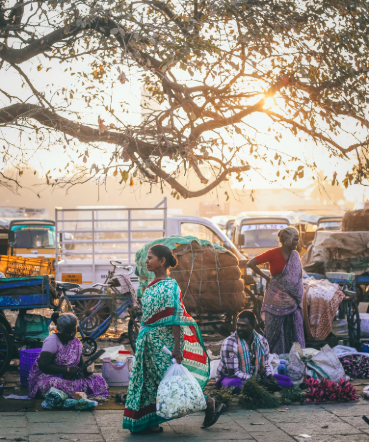By Fariha Munim.
Growing up, Bangladeshi politics was a constant discussion point in our household as they were in many Bangladeshi homes throughout Britain. Two women, each adorned with simple or elegant saris, looking like they would drop dead any moment had fascinated the minds of uncles, aunts, fathers, and mothers over tea and biscuits in the evening for over 20 years.
What a wonderful blend of British and Bangladeshi.
(Yet, don’t let their dress detract you from the impressive fact that politics in a largely patriarchal society was dominated by not one, but two females from opposing sides in their bid to lead one of the world’s largest ‘democracies’ by population.)

As a History graduate today, I can’t say that I was never interested in those political debates waged at home, because I always was. However, I grew severely pessimistic about what was going on in Bangladesh as I got older. Politically, the country seemed like a lost cause and I was simply content to go on and spend holidays in luxury there over the summer like I had done since I was a child. Politics was and still seems like a lost cause in Bangladesh. The causes to exactly why, are still up for debate. Did I grow apathetic? Yes. Was I happy about my apathy? No.
From an outsider lens, Bangladeshi politics is close, and also so distant from me. This is a take into why, someone who can not even vote in Bangladesh still takes an interest into Bangladeshi politics in 2018 and a message to why younger British Bangladeshis should also be aware of the situation.
Today, millions have tried to vote in Bangladesh’s 2018 General Election. Bangladesh is the 8th most populous country in the world with over 170 million people inside its borders. This is the first time in its history that the same party could be “re-elected” into power. However, as part of election practice almost in Bangladesh, fair elections are not being waged.
People have been coerced to vote in ways that do not meet the standards of democratic voting behavior. The link attached here in translated English talks about how a young woman was followed inside a voting booth, is coerced to vote for the ruling Awami League which is defined by a symbol known as a ‘nouka’ (boat). The follower eventually moves aside but can see what party the woman voted for, and publicly then proceeds to tell her in front of other public voters that she did not do the right thing by voting for another party. This is a micro-aggression that has happened in bouts up and down the country. Yet, the effects of such undermining only serve to create a sense of oppression.
Communications inside the country surrounding election related covering have been banned until after the vote in the hopes to stop the spread of ‘fake news’.
Many views from British Bangladeshis are that Bangladesh works on a system of corruption that is suited to Bangladesh. Yet, for the educated middle and upper classes, this is becoming increasingly challenged as a way of governance. In Bangladesh, these are the groups that have traditionally led the way for active change in the past and have been shunned for it. Shunning these groups was used as a colonial tactic by Pakistani military authorities during the 1971 War of independence where student groups, doctors, professors, teachers and journalists were murdered on the grounds of Dhaka University.
People are not settling for anything less than democracy as a result of being educated more and more on the values of democracy preached in Bangladesh’s constitution and held up in the curriculum as a reference point of good governance.
The least I can do, from my privileged position as someone who can sit in the comfort of her own home without fear of prosecution or arrest, is to speak freely about the situation of a country so many people my age want to see change for.
1/3 of Bangladesh’s population is of between 18–35, with 18 being the voting age. Bangladesh has achieved a youth literacy rate for the ages of 15–25 of just over 87% which means that the language of democracy is well within bounds to be understood. This is a major reason as to why we are seeing such outrage as democratic expectations are not being held yet believed by so many as an achievable end Bangladesh can achieve.
People are being arrested for what they post online. Freedom of speech has been tampered with on severe scales. People are being coerced mentally to vote in specific ways. The violence on streets has not been explored here, because this is a common occurrence in Bangladesh but should really take us all with shock like if it happened in Britain. Younger Bangladeshis want change, and as an ally, the least we can do is support them achieve their goals.
Had I been born and raised in Bangladesh, I would not be writing this with such boldness that I am now. This right to speak freely should never be seen as a privilege but as a right. People are being denied this, despite believing in its inherent worth — they are wanting the world to see, so the least I can do?
Give Bangladesh the attention that I have the voice to give. So can you.
